How to Identify Trees by Their Leaves (and Impress Your Friends)
Ever wanted to turn over a new leaf and learn to identify trees but found all the information too overwhelming? You’re in for a treet! We’ll look at some of the most common trees in NYC and go through the basics of tree identification by leaves. You’ll learn how to recognize some of the species you’re most likely to see while you walk down the street or through a park. Then, if you want to branch out and learn to identify even more trees, just check out NYC Street Tree Guide! You’ll become a celebri-tree in no time.
Leaf Shape
The shape of every NYC tree leaf falls into one of a few basic categories, including Hand, Oak, and Teardrop.

Hand
Leaves in this category look like a hand with fingers spread wide, ready to give you a high five for being so good at tree identification.
London planetree
A great example of the Hand shape is the London planetree, the most common tree in NYC. There are almost 95,000 London planes spread throughout the boroughs, so if you see a hand-shaped leaf with three points that looks an awful lot like the NYC Parks logo, odds are, it’s from a London planetree.
And if it has multi-colored bark that is falling off? Fuhgedda-bough-dit! That’s almost certainly a London plane.
Also in this category, are several maple trees, whose leaves you may recognize from the syrup bottle on your breakfast table, their vibrant red colors in autumn, and the flag of a certain neighbor to our north.
Honorable Mention: Sweetgum
While technically in the Hand category, the Sweetgum, honestly, looks more like a starfish. Also distinctive for its fruit shaped like spiky balls.
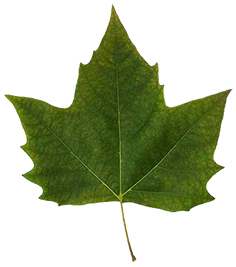
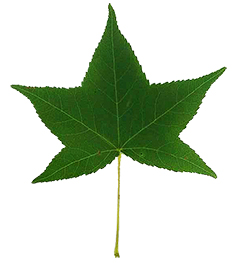
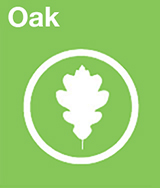
Oak
Leaves in the Oak category are distinguished by having lobes, leaf parts that are separated from the rest of the leaf by a gap. Different species of oaks have different shapes and sizes of lobes.
Pin Oak
The pin oak is the most common oak species in NYC and has distinctively deep lobes, where the open space comes almost to the center of the leaf, and the points of the lobes are incredibly pointy.
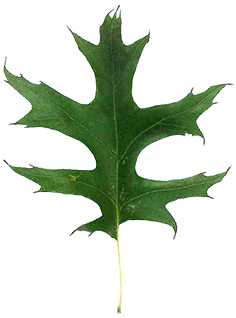
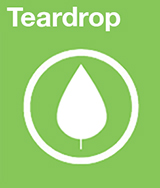
Teardrop
Don’t cry! This one’s easy! Teardrop-shaped leaves are broad at the base and narrow at the top.
Callery Pear
The Callery pear is the 3rd most common street tree in NYC. Its teardrop leaves are broad and symmetrical, and the leaf texture is tough and waxy.
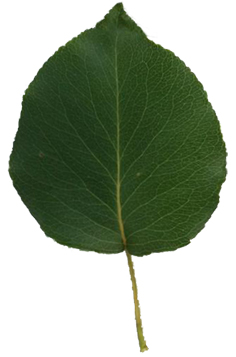
Leaf Structure
You can also pay attention to how the leaves are attached to the tree’s twigs or branches. Most NYC street trees have simple leaves, where the leaf stem is joined to the twig. Trees with a compound structure have leaflets attached to a central stalk, which attaches to the twig.
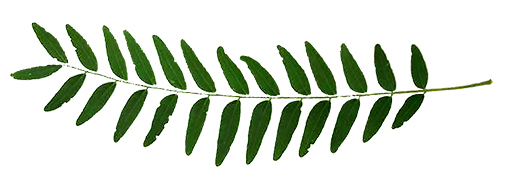
A well-known example of a compound leaf structure is the honeylocust, the second most common street tree in NYC. The honeylocust leaflets are arranged with small leaves opposite each other on a central stalk, with no single small leaf at the tip.
Location, Location, Location
Knowing where you are can also be a valuable clue to identifying the trees around you. For street trees, London planetrees, honeylocusts, and pin oaks are common citywide, but if you’re in Manhattan or Staten Island, you have a good chance of seeing Callery pears as well.
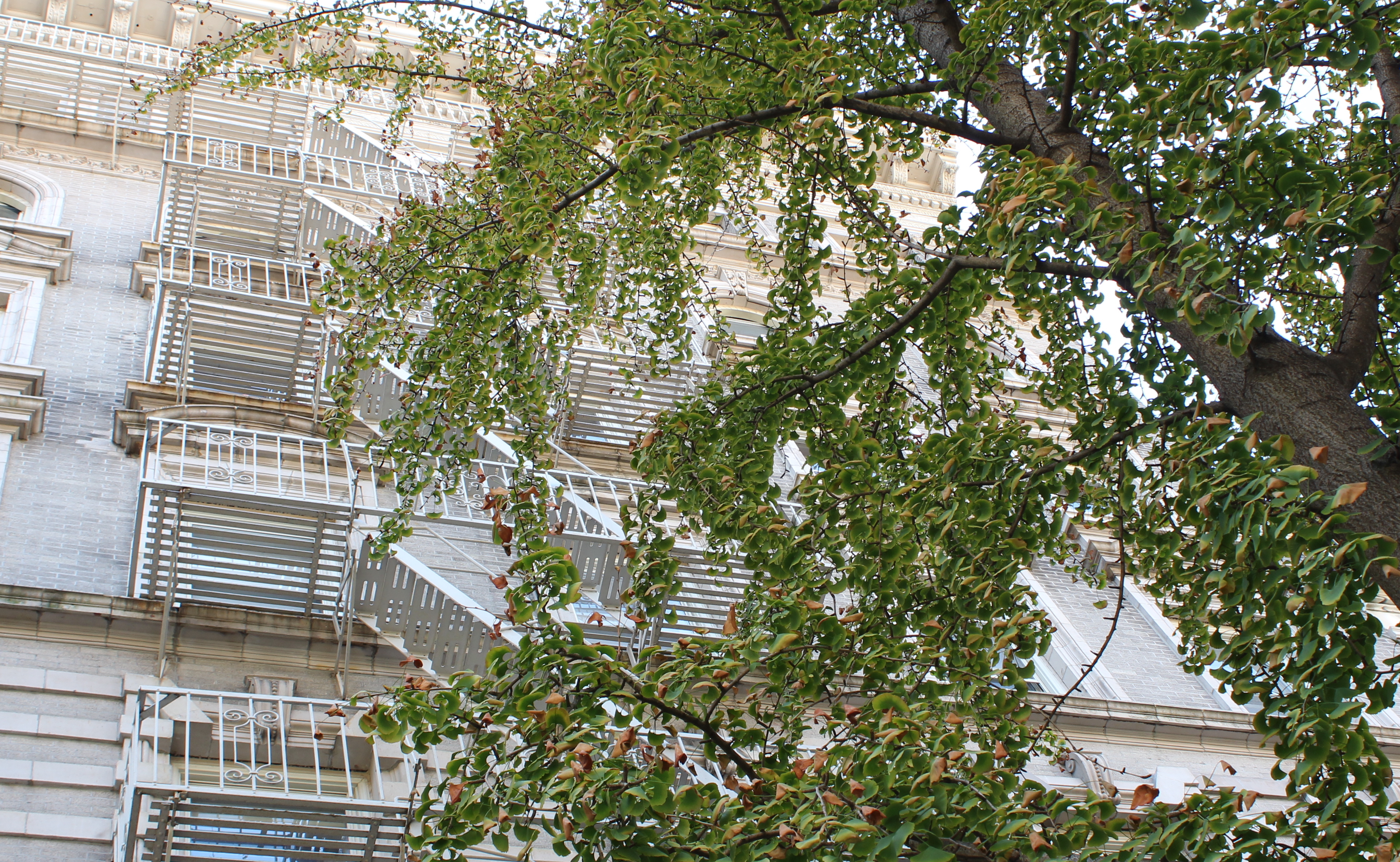
Gingko trees (shown here) are common street trees, especially in Manhattan, because they are well-adapted to handle the challenges of the urban environment, like pollution, road salt, pet waste, soil compaction, etc.
Visit our Tree Census to learn more about the most common street trees by borough
Natural elements around you can also affect the types of trees you’ll see. Near lakes, streams, or low-lying areas, you may see the long, wispy leaves of a weeping willow, as these trees prefer wet soils.
Ready to Explore More?
Ready to put your new expertrees to the test? There are millions of trees in the parks and streets of New York City for you to practice! See how many London planetrees, pin oaks, honeylocusts, and Callery pears you can recognize.
- Use our NYC Street Tree Map to see which species are near you and check your work. You’ll also find tips on how to care for trees and keep our urban forest healthy!
- During the fall, while the leaf shape and structure stay the same, the colors of the leaves may change to yellow, red, orange, or brown. Check out our Fall Foliage page to learn how to identify trees in autumn!
- Identifying trees in the winter is even trickier when the trees are bare! Learn How to Identify Trees Beyond the Leaves.
- Check out the NYC Street Tree Guide to learn even more about trees.
Image Sources: Kumar, Neeraj, Lawrence Barringer, Peter N. Belhumeur, Arijit Biswas, David W. Jacobs, W. John Kress, Ida C. Lopez, and João VB Soares. “Leafsnap: A Computer Vision System for Automatic Plant Species Identification.” In Computer Vision–ECCV 2012, 502–16. Springer, 2012. “Dendrology at Virginia Tech,” June 2014. v Supplementary images sourced from Wikipedia Commons.
